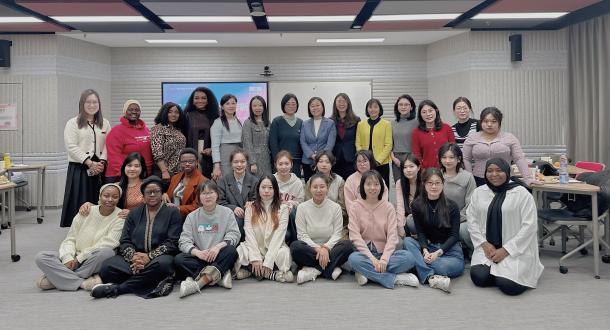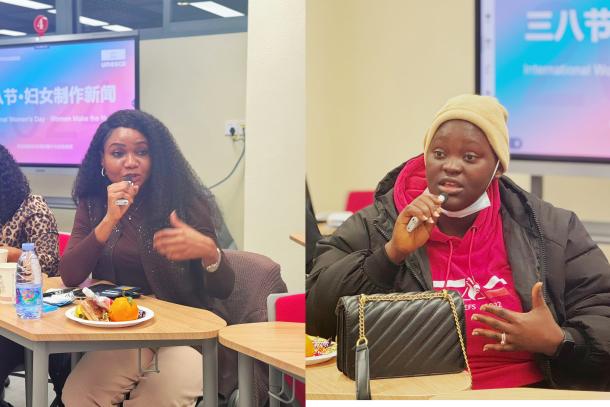News
The UNESCO Chair in Media and Gender successfully holds a series of events entitled "International Women's Day · Women Make the News"

To commemorate "International Women's Day" and respond to the "International Women's Day · Women Make the News" initiative put forward by UNESCO, the UNESCO Chair in Media and Gender in China held a themed event on March 7 2024. The event featured Ms. Cai Shuangxi, the editor-in-chief of New Women's Studies of the influential China Women's News, to share her experiences and insights on women making the news. The Chair Holder Liu Liqun, joined by representatives of teachers and students from Communication University of China and China Women's University, the hosting institutions of the Chair, discussed together with female officials and student representatives from eight developing countries including Liberia, Nigeria, and Sierra Leone.
Cai Shuangxi delivered a keynote speech entitled "How the Media Guide Chinese Women to Participate in Building a Powerful Country in Science and Technology in the New Era". She said, "With the advent of the new era, science and technology have become the core driving force of national development, and the role of the media in encouraging women to participate in building a powerful country in science and technology cannot be overlooked." She pointed out that the media shall increase its agenda-setting efforts, accelerate the innovation in reporting forms, and further publicize the laws, regulations, policies, and activities that support the role of female technology talents in building a powerful country in science and technology. Particularly, she stressed the need to vigorously promote the fundamental state policy of gender equality, break down gender stereotypes, and encourage the media to create a synergistic force that guides women in the new era to participate in building a powerful country in science and technology to draw more attention to the group of female scientists, inspire more women to engage in the field of technological innovation, unleash the vitality of technological innovation, and contribute the tremendous strength of women.
Ngohide Scholastica Gbayange from the University of Nigeria believed that "African countries such as Nigeria are facing situations similar to those in China. In making the news, the rapid development of technology is providing more opportunities for women to express their views. Through social media and new media platforms, women can convey their views and voices more conveniently."
Fatmata Charles Mambu, an international student from the Sierra Leone Infrastructure Development Committee, pointed out that the media platform shall strictly adopt corresponding supervision mechanisms and screening measures for information on the internet, standardize the workflow of making the news, and strictly control news sources to prevent the dissemination of false information.
Students who participated in the event expressed that through women making the news, it's possible to better present diverse perspectives on gender, race, and region, and promote the fairness and objectivity of reporting, thus driving social change and progress.

In her concluding remarks, Liu Liqun emphasized that "this event embodies the spirit of information dissemination and knowledge sharing promoted by UNESCO, and fulfills the mission of the Chair to promote international exchanges and cooperation. Outstanding women from all over the world have gathered here to discuss the significant topic of women making the news, which holds special significance and value at this particular point in time".
Relevant information showed that China has been committed to promoting women's participation in making the news, with women now playing a crucial role in media development. According to the China Journalism Development Report 2022 released by the All-China Journalists Association, a total of 194,263 journalists in China hold valid press cards, of which 50.6% were women. In addition, women account for approximately 59.5% of online news practitioners.
UNESCO has set up the Chair in Media and Gender in China for 19 years, initially founded at Communication University of China in September 2005, with a Joint Chair later established at China Women's University in October 2018. In 2023, UNESCO approved the application for a four-year extension of the Chair once again, pooling the superior resources of the two universities to advance the development of the Chair.
Contributed by: Office of UNESCO Chair in Media and Gender
Read more:








